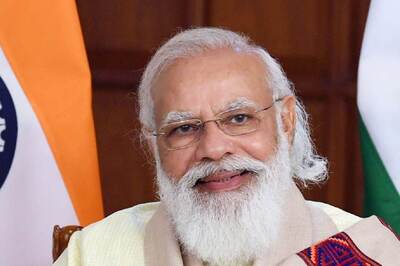
views
Mumbai: India's growth outlook has improved but global imbalances and high oil prices pose risks, RBI governor Yaga Venugopal Reddy said.
Any large interest or exchange rate adjustments could impact the economy indirectly, he added.
RBI governor said that government borrowing costs could rise if external factors pushed up domestic interest rates.
"But because most government borrowing was at fixed rates the rise would be incremental providing greater headroom for a flexible monetary policy to adjust policy rates, added Reddy."
Reddy said the outlook for output growth in India had improved in recent months, particularly with momentum gained in manufacturing.
"However, persistence of global imbalances and high oil prices with a significant permanent component do pose some risks," he said.
Speaking about the implications of global financial imbalances for emerging markets, Reddy said while India by itself hardly contributed to global financial imbalances, big changes in external conditions could indirectly impact the Indian economy.
"It is clear that the impact on India would depend on the pace and extent of currency and current account readjustments, and changes in global interest rates," he said.
Apart from government borrowing, Indian corporates could be affected by deterioration in financing conditions if they had not hedged foreign exchange positions on overseas borrowings.
RBI on corporates and banks
Indian corporates have been borrowing extensively over the past two years from international markets to fuel their expansion and take advantage of low foreign interest rates.
Reddy said Indian banks had seen sharp growth in demand for loans and warned that credit growth in some sectors was being watched closely, especially in areas ?related to assets which are experiencing price volatilities?.
"There is a risk that a rise in interest rates in general could impact housing prices and expose the balance sheet of the households to interest rate risk, leading to some loan losses for banks," he said but added banks' overall exposure to housing loans was small and did not have systemic implications.
Similarly, although banks? exposure to the stock market was not large, it was increasing and any reversal of capital inflows could impact banks through loan losses.
Reddy said the most significant impact on banks from any global readjustment would be through their investment portfolios, although the banking sector had strengthened recently and had the resilience to withstand some rise in interest rates.
The Reserve Bank of India raised its benchmark short-term interest rate for the third time in a year last week by a quarter percentage point to 5.25 per cent, the highest in 2 1/2 years.
It also raised its growth forecast for the financial year to the end of March 2006 to 7.0-7.5 per cent from an April estimate of around 7.0 per cent.
India's combined central and state fiscal deficit was 8.3 per cent of gross domestic product in 2004/05, one of the highest in the world.




















Comments
0 comment